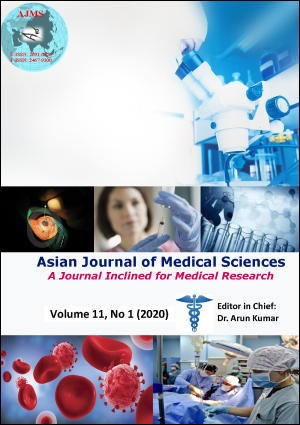Brain exercise in elderly: NeuroSky smarter Kit investigation
Keywords:
Brain Exercise, Brainwave Training, Brainwaves, Elderly People, Neurosky Smarter KitAbstract
Background: The measurement analysis of the brainwaves can show whether or not human’s mental or cognitive status is in a sober state. The speed of the computer signal processing technology increased until it could sufficiently process the complex brainwave signals measured in real-time. Therefore, the information about the mental status thus gradually revealed a research in information science called affective computing.
Aims and Objective: The purpose of this study was to study the use of NeuroSky Smarter Kit in brain exercise training program by Brainwave Cloud Classroom (BCC) system, on both attention and meditation levels’ changes in elderly.
Materials and Methods: The sample of this study were fifteen participants, which were four men and ten women, aged 61-84 years old. All participants were measured their attention and meditation levels by NeuroSky Smarter Kit prior to the brain training program. During the brain exercise training program by Brainwave Cloud Classroom (BCC) system, should any participant could not proceed to the next session, he/she was measured their attention and meditation levels again. They were allowed to break for fifteen to thirty minutes or as much as they needed. Then, the second brain training was done and that participants were measured their attention and meditation levels again.
Results: The result showed that attention and meditation levels were gradually increased with no statistically significant. Both theta and alpha brainwaves were increased statistically significant.
Conclusion: The attention level increased while the meditation level was sustained similar to before brain exercise training. Some electroencephalographic activities including theta and alpha brainwaves were gradually increased with statistically significant while gamma brainwave did not change.
Downloads
Downloads
Published
How to Cite
Issue
Section
License
Authors who publish with this journal agree to the following terms:
- The journal holds copyright and publishes the work under a Creative Commons CC-BY-NC license that permits use, distribution and reprduction in any medium, provided the original work is properly cited and is not used for commercial purposes. The journal should be recognised as the original publisher of this work.
- Authors are able to enter into separate, additional contractual arrangements for the non-exclusive distribution of the journal's published version of the work (e.g., post it to an institutional repository or publish it in a book), with an acknowledgement of its initial publication in this journal.
- Authors are permitted and encouraged to post their work online (e.g., in institutional repositories or on their website) prior to and during the submission process, as it can lead to productive exchanges, as well as earlier and greater citation of published work (See The Effect of Open Access).




